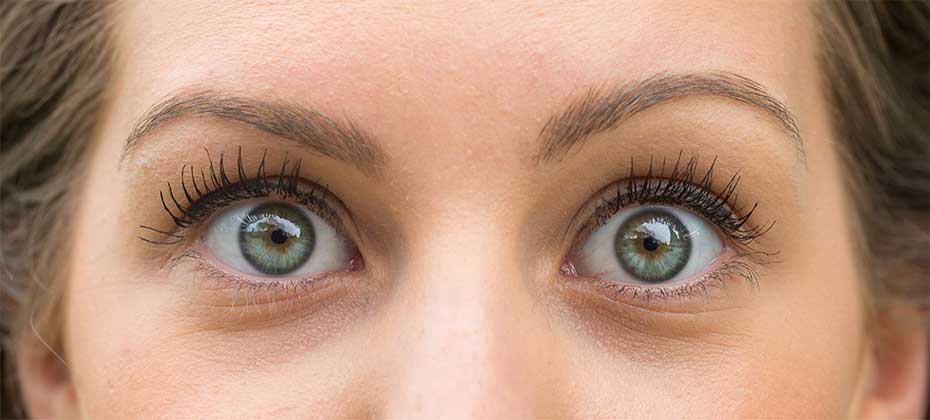What Does A Crack High Feel Like?

Medically Reviewed By: Kimberly Langdon, M.D.

Written by: Fikret Terzic MD, MS
A crack cocaine high involves feeling a sense of euphoria and an increase in energy and mental alertness. You may also be more talkative and sensitive to sights, sounds, and touch.

Crack (or freebase cocaine) is a form of cocaine that’s made by taking powdered cocaine hydrochloride, combining it with water, ammonia, and baking soda, and then cooking it until it becomes solid. When in this form, the drug is heated up and smoked.
When smoked, the drug creates a short-term high. The drug goes directly to the brain, releases dopamine, and causes a feeling of intense pleasure. What it specifically feels like can differ from person to person but it generally has an immediate euphoric effect.
What A Crack High Feels Like
When crack cocaine is smoked, the high can occur in less than 10 seconds because the drug goes straight to the brain. The person using it will likely feel an intense euphoric effect. The intensity is due to the way the drug is administered.
Beyond the feeling of euphoria, some people have also noted that they felt very jittery or that a ringing sound was “vibrating” in their mind.
The crack high can also include feelings of:
- increased energy
- mental alertness
- talkativeness
- restlessness
- hypersensitivity to sights, sounds, and touch
Some people also found that they were able to perform tasks more quickly while others had the exact opposite reaction. How you feel depends on the purity of the drug and whether there are any other drugs or additives mixed in.
How Long Does A Crack High Last?
No matter the intensity of the high, a crack high doesn’t last very long at all. With cocaine, whether it be the powder form or freebase, the faster the high occurs, the faster it will go away. For crack cocaine, the high only lasts 5-10 minutes.
What Happens After A Crack High?
Once the high from smoking crack begins to wear off after 5-10 minutes, an intense low follows. This can start as feelings of sadness and lead to mental health issues like depression. It can then be followed by insomnia, irritability, anxiety, and paranoia.
You may also experience symptoms of psychosis, such as delusions or hallucinations, in severe cases.
Crack Tolerance
Many people who use crack cocaine report that they don’t feel the same pleasure or euphoric high they felt when they first used the drug.
They may try to chase that feeling by increasing the dose. While that may work for a while, they will eventually build up a tolerance and their body won’t react to the drug in the same way it once did.
Many people end up struggling with drug addiction because they are looking for the high they felt when they first started using the drug. It leads them to take higher and higher doses which can lead to dependence and greatly increase their chances of an overdose.
Side Effects Of Crack Use
While a high can feel like mostly psychological or behavioral symptoms, there are some physical signs and symptoms that can occur when you smoke crack as well. Some can show up immediately, while others may not appear until after several uses.
These physical side effects of crack can include:
- bronchitis
- respiratory problems
- decreased appetite
- weight loss
- seizures
- high blood pressure
- hoarseness
- increased heart rate
- dilated pupils
- shortness of breath
- burning of the lips/tongue/throat (from the hot crack pipe)
Signs Of Crack Abuse
Any form of substance abuse comes with signs and crack cocaine abuse is no different. There are some signs you can look out for if you suspect a loved one is abusing crack, which may include:
- dilated pupils
- muscle twitches
- burns on fingers
- blistered or burned lips from smoking from a pipe
- restlessness
- crack cocaine paraphernalia like pipes, tin foil, and straws lying around their space
- obsessive desire/craving to smoke crack
- aggressive or volatile behavior
- financial issues due to spending money on crack
- social isolation
- neglecting responsibilities
Addiction Treatment For Cocaine Use Disorder
The high of crack cocaine is one of the reasons it can be so addictive and so difficult to quit. Luckily, there are many treatment options for those struggling with cocaine use disorder.
Crack cocaine addiction treatment programs are offered by inpatient or outpatient treatment providers and may include:
- medical detox
- cognitive behavioral therapy (CBT)
- motivational interviewing
- contingency management
- group therapy
- aftercare support
If you or a loved one are looking for treatment for drug abuse in Ohio, Ohio Recovery Center is here to help you start on your road to recovery. We offer a range of substance abuse treatment programs including detox, inpatient treatment, and aftercare.
For more information, please call our helpline today.
- Center For Addiction and Mental Health — Cocaine and Crack https://www.camh.ca/en/health-info/mental-illness-and-addiction-index/cocaine
- Illinois Department of Human Services — Facts You Should Know about Crack https://www.dhs.state.il.us/page.aspx?item=33604
- NYC Health — Cocaine Abuse & Addiction https://www1.nyc.gov/site/doh/health/health-topics/cocaine-abuse-and-addiction.page
- National Institute on Drug Abuse — Cocaine DrugFacts https://nida.nih.gov/publications/drugfacts/cocaine
- National Institute on Drug Abuse — What are the short-term effects of cocaine use? https://nida.nih.gov/publications/research-reports/cocaine/what-are-short-term-effects-cocaine-use

